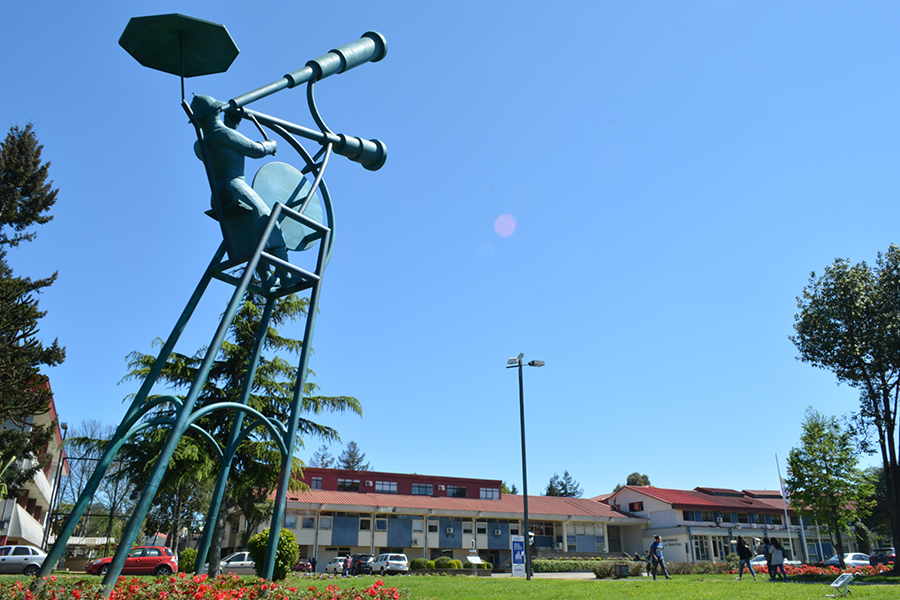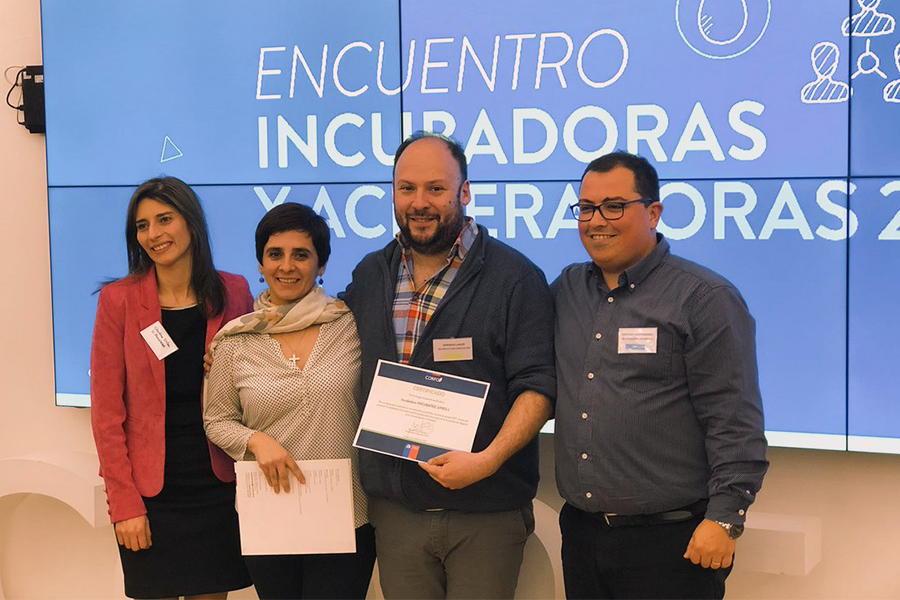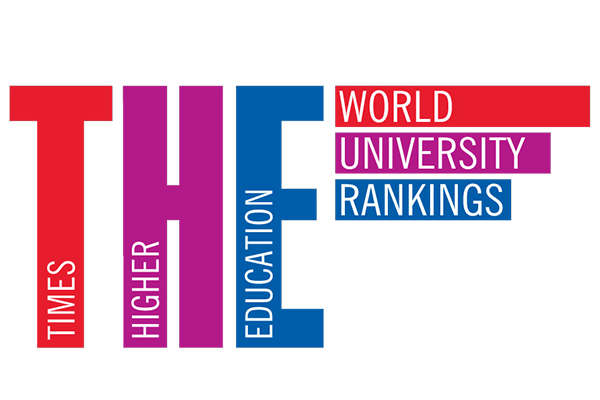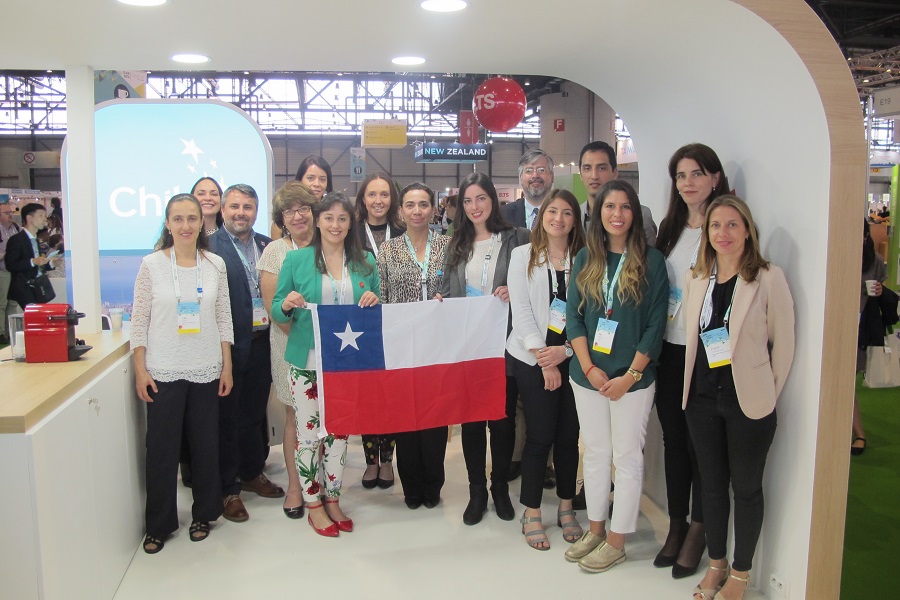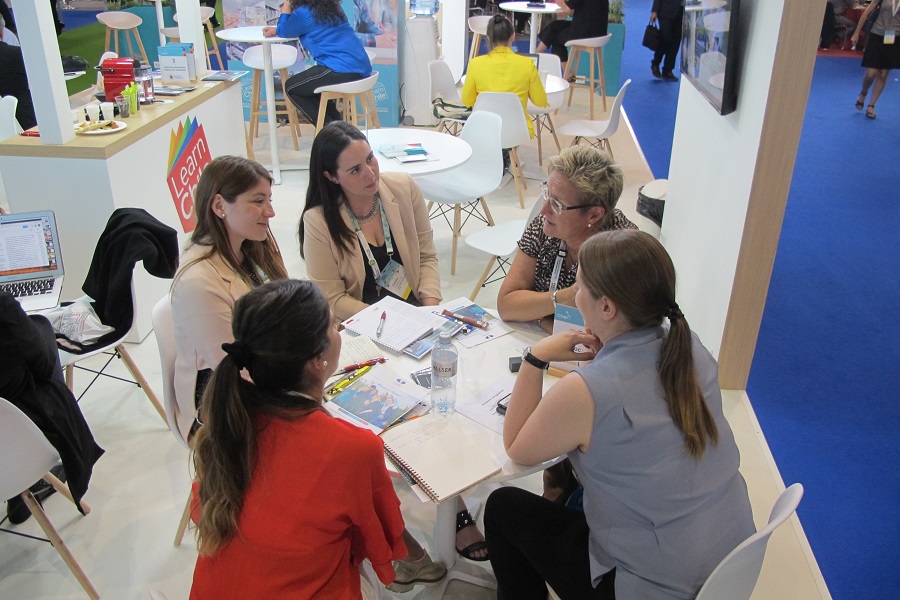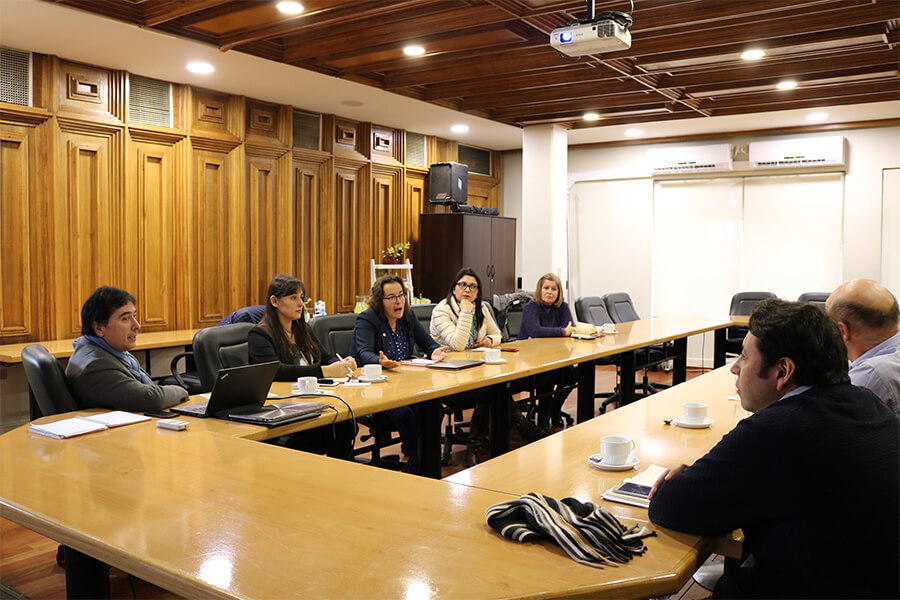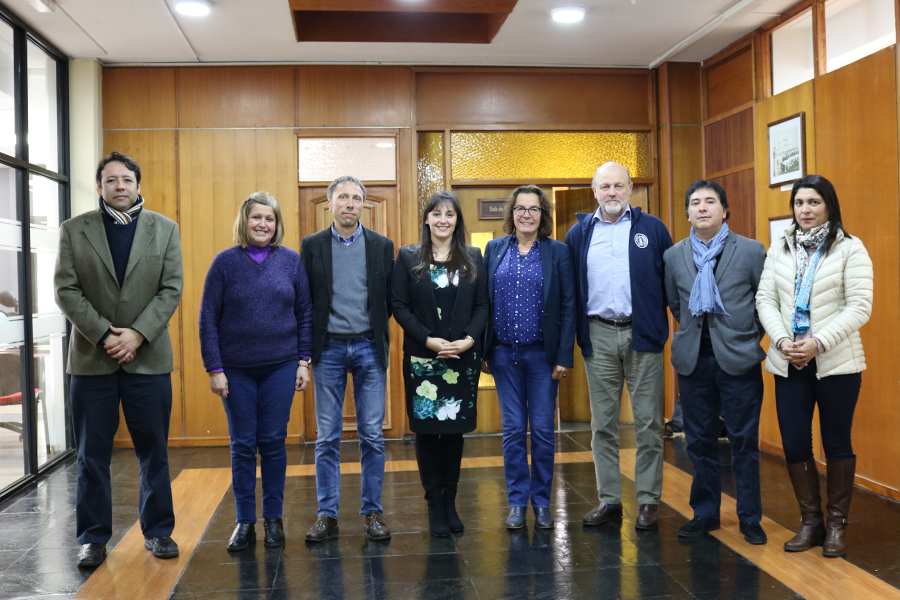|
In 2019, this institution will execute seven projects that will strengthen its international links and joint collaborative work. It is the second year in a row in which the UFRO reaches a leading position in this national competition. |
The Universidad de La Frontera celebrates a major success again. As well as in 2017, it is in second place regarding the number of projects and resources it acquired in the latest Competition for the Attraction of International Advanced Human Capital, Modality Short Stays-MEC, by Conicyt.
 Written by: Jassna Sepúlveda B. /Sergio Valenzuela S. Written by: Jassna Sepúlveda B. /Sergio Valenzuela S.Communications Office |
|
IncubatecUFRO was recognized as the best in Chile, regarding the sales of its portfolio of entrepreneurs in 2017. |
You can find the best business incubator in Chile in the Araucanía Region and it is called IncubatecUFRO. It was recognized by the Production Development Corporation (CORFO), which awarded the incubator and accelerator of the Universidad de La Frontera for being the best in Chile, regarding the sales of its portfolio of entrepreneurs in 2017.
 Written by: Dirección de Comunicaciones Written by: Dirección de ComunicacionesThis email address is being protected from spambots. You need JavaScript enabled to view it. |
|
The THE Rankings 2019 report places the UFRO in seventh place in Chile and in first place among regional state universities. |
The level of quality at the Universidad de La Frontera has been acknowledged again in the latest edition of the Times Higher Education World University Rankings 2019, in which the UFRO is in seventh place among the Chilean universities in general and in first place among the Chilean regional state universities. In the Latin-American context, it is placed in the range 61-70. CLICK HERE TO SEE THE RANKINGS
|
|
Fourteen higher education institutions, united under the sectorial brand Learn Chile, participated at the EAIE 2018 Conference in Geneva, Switzerland, in order to strengthen its links with the main continent from which the exchange students in Chile come from. The UFRO was one of them, with the participation of the International Affairs Office´s director, Dr. Pamela Leal. |
Geneva, Switzerland. Hundreds of work meetings, new international cooperation agreements, an excellent visibility and the positioning of the academic offer in Chile – this is what these 14 higher education institutions, who were present at the European Association for International Education (EAIE) Conference 2018, achieved. At this event, 5500 experts and educators of 85 countries came together in order to get to know the latest tendencies in higher education and to activate new cooperation networks that will pave the way for student exchange and academic cooperation during the next years.  Source: Learn Chile Source: Learn Chile |
|
The creation of an international research institute and the progress in consolidating the double graduation are part of the projections of joint work with KU Leuven. |
The delegation of authorities from KU Leuven in Belgium had a busy timetable with different activities during their visit at the Universidad de La Frontera and the Araukanía Region, within the framework of the international agreement between both institutions. On this occasion, the group consisted of Nadine Buys, dean of the Faculty of Bioscience Engineering, and the academics Bart Muys and Pol Coppin. Coppin is also an Honorary Professor at the UFRO Faculty of Agricultural and Forestry Science. They had a series of meetings in order to get to know the advances and to monitor the cooperation activities of both institutions. They met with authorities and academics of the Faculty of Agricultural and Forestry Science, such as the dean, Rodolfo Pihán, and the vice dean, Adison Altamirano. The visit was based on the specific cooperation agreement this unit made with KU Leuven in 2009 and which had successful results that allowed to expand the partnership in 2017 through the elaboration of a broad cooperation agreement that also defines the double graduation for doctoral UFRO programs. The agenda of the delegation included meetings with university and faculty authorities. At the same time, they had on-site activities. They visited a forestry company where students of KU Leuven, who are at the UFRO at the moment, are doing their practical training, and went on a tour to the Villarica National Park, considering that the Belgian students who come to the UFRO are specializing in different areas of the field of forestry. INTERNATIONAL RESEARCH INSTITUTE One of the planned activities was the meeting with researchers in different fields of the Scientific Technological UFRO Nuclei (BIOREN and Social Science & Humanities). And one of the planned joint projects in the field of science is the creation of an international research institute that considers the UFRO, KU Leuven (Belgium) and Macquarie University (Australia), and possibly an institution from Africa. The planned institute, which would be located at the UFRO, would focus on global problems, approaching them from a multidisciplinary perspective, including Social Sciences, Engineering, Biological Sciences, etc. Dr. Adison Altamirano commented: “We want to do science which is globally relevant and possible to do from here, the Araukanía Region, a region that fulfills the necessary conditions.” The representatives of the Belgian university appreciate the partnership they built with the UFRO and the exchange experiences for academics and students, besides the expectations regarding future collaborative actions. According to Dr. Altamirano, one of these future projects is to advance in the consolidation of a double graduation that both institutions maintain and, particularly, in the case of the Doctoral Program in Agri-food Sciences and Environment. At the same time, he emphasized the link through the Erasmus Project that permitted two students of the Master´s Program in Natural Resource Management to do an internship at KU Leuven.
Written by: Faculty of Agricultural and Forestry Science
|





